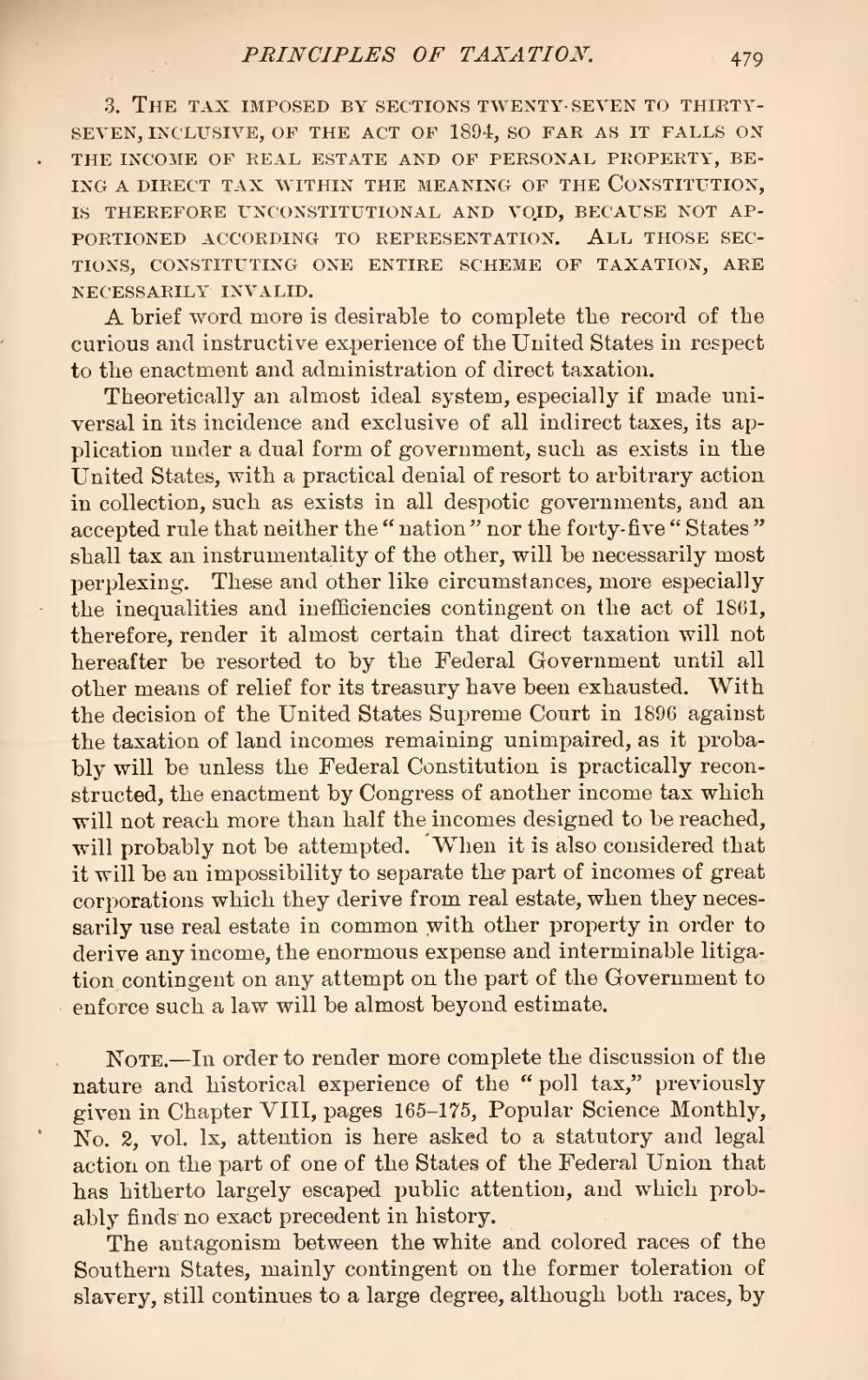3. The tax imposed by sections twenty-seven to thirty-seven, inclusive, of the act of 1894, so far as it falls on the income of real estate and of personal property, being a direct tax within the meaning of the constitution, is therefore unconstitutional and void, because not apportioned according to representation. all those sections, constitution one entire scheme of taxation, are necessarily invalid.
A brief word more is desirable to complete the record of the curious and instructive experience of the United States in respect to the enactment and administration of direct taxation.
Theoretically an almost ideal system, especially if made universal in its incidence and exclusive of all indirect taxes, its application under a dual form of government, such as exists in the United States, with a practical denial of resort to arbitrary action in collection, such as exists in all despotic governments, and an accepted rule that neither the "nation" nor the forty-five "States" shall tax an instrumentality of the other, will be necessarily most perplexing. These and other like circumstances, more especially the inequalities and inefficiencies contingent on the act of 1861, therefore, render it almost certain that direct taxation will not hereafter be resorted to by the Federal Government until all other means of relief for its treasury have been exhausted. With the decision of the United States Supreme Court in 1896 against the taxation of land incomes remaining unimpaired, as it probably will be unless the Federal Constitution is practically reconstructed, the enactment by Congress of another income tax which will not reach more than half the incomes designed to be reached, will probably not be attempted. When it is also considered that it will be an impossibility to separate the part of incomes of great corporations which they derive from real estate, when they necessarily use real estate in common with other property in order to derive any income, the enormous expense and interminable litigation contingent on any attempt on the part of the Government to enforce such a law will be almost beyond estimate.
Note.—In order to render more complete the discussion of the nature and historical experience of the "poll tax," previously given in Chapter VIII, pages 165-175, Popular Science Monthly, No. 2, vol. Ix, attention is here asked to a statutory and legal action on the part of one of the States of the Federal Union that has hitherto largely escaped public attention, and which probably finds no exact precedent in history.
The antagonism between the white and colored races of the Southern States, mainly contingent on the former toleration of slavery, still continues to a large degree, although both races, by
